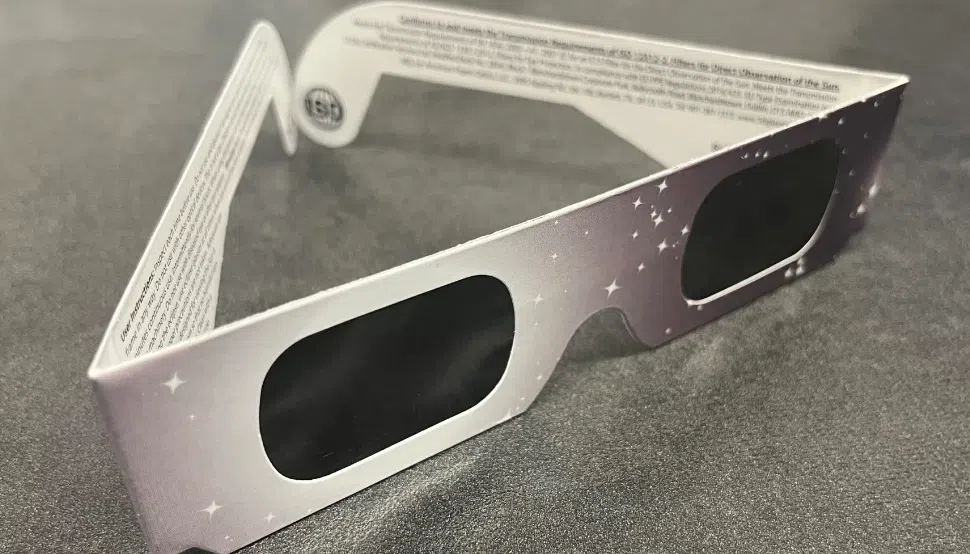
As we count down the final days to the solar eclipse, health professionals wants to make sure everyone is taking the proper precautions when it comes to protecting their peepers.
Dr. Jessica Jackman says you shouldn’t be looking at the eclipse with anything other than ISO-certified glasses.
The proper certification on the glasses should read ISO-12312-2, and should only be purchased from a reputable source.
Dr. Jackman adds that because there’s no pain receptors in your retinas, you may not even realize you’re doing damage.
While eclipse glasses are designed for looking at the sun during an eclipse, when you’re wearing them normally you won’t be able to see anything. Dr. Jackman says this means children may not want to keep them on, which could be a challenge.
If you damage your retinas, called solar retinopathy, it usually takes 4-6 hours to notice, and can result in early symptoms including blurry vision, headaches, a blind spot, or increased sensitivity to light.
There is no treatment for solar retinopathy, but professionals say it is important to see your ophthalmologist if you experience difficulties with your vision. An ophthalmologist will take a scan of the eye to see the extent of any damage.
Most people recover after three to six months, but some will suffer from permanent vision loss, in the form of a small blind spot and distortion.
Story by Matt Latour
rg6dai
8yxutg